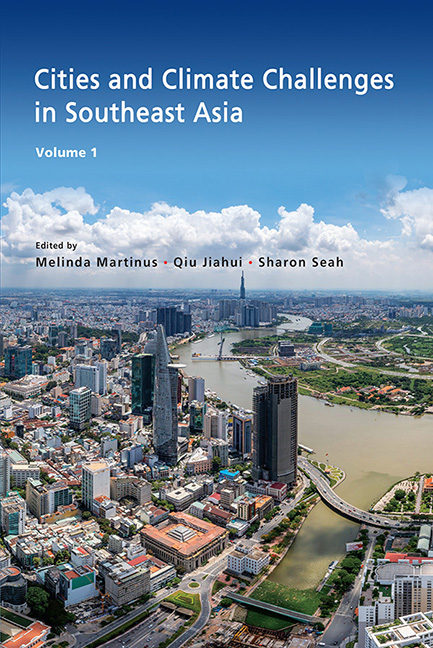11 - The Application of the Task Force on Climate-Related Financial Disclosures Index (TCI) on Malaysian Property and Construction Companies
Published online by Cambridge University Press: 09 January 2024
Summary
Summary:
■ There has been a proliferation of tools to monitor and measure the impacts of climate change, including the framework of the Task Force for Climate-Related Financial Disclosures (TCFD), which has been endorsed by leaders in the G7 summit recently calling on mandatory climate disclosures.
■ This chapter highlights the different elements within the TCFD, such as strategies, governance, risk management, metrics, and targets, to investigate further shortcomings in existing tools and their gaps in carbon reporting.
■ This chapter explores possible challenges in the Malaysian property and construction sector and proposes recommendations to address them.
■ A novel TCFD Index (TCI) is recommended to measure the degree of incorporation of four elements (strategy, governance, risk, metrics and targets). TCI will be helpful to both academicians and practitioners involved in city development who are exploring tools to integrate climate resilience.
INTRODUCTION
The impacts of climate change are global in scope and unprecedented, from shifting weather patterns which threaten food security to rising sea levels that increase the risk of catastrophic flooding (United Nations 2019; Wheeler and von Braun 2013). This phenomenon is caused by the release of heat-trapping greenhouse gases (GHGs), primarily carbon dioxide (CO2), produced by a wide range of human activities (Nature Conservancy 2007). As populations, economies and standards of living continue to grow, so does the cumulative level of GHG emissions. The Fifth Assessment Report by the Intergovernmental Panel on Climate Change (IPCC) estimates the cumulative CO2 emissions since preindustrial times and provides a carbon budget for future emissions to limit temperature from increasing beyond 2 degrees Celsius (United Nations 2019). Given current ongoing emissions, it has been predicted that the global mean temperature will continue to rise above the preindustrial level. With polar ice cap melting and warmer oceans, average sea levels are estimated to rise from 24–30 cm by 2065 and 40–63 cm by 2100 relative to the reference point of 1986–2005 (ibid.). The reality is that the impacts of climate change will continue to persist for many centuries even when emissions have stopped.
- Type
- Chapter
- Information
- Cities and Climate Challenges in Southeast Asia , pp. 157 - 173Publisher: ISEAS–Yusof Ishak InstitutePrint publication year: 2023

